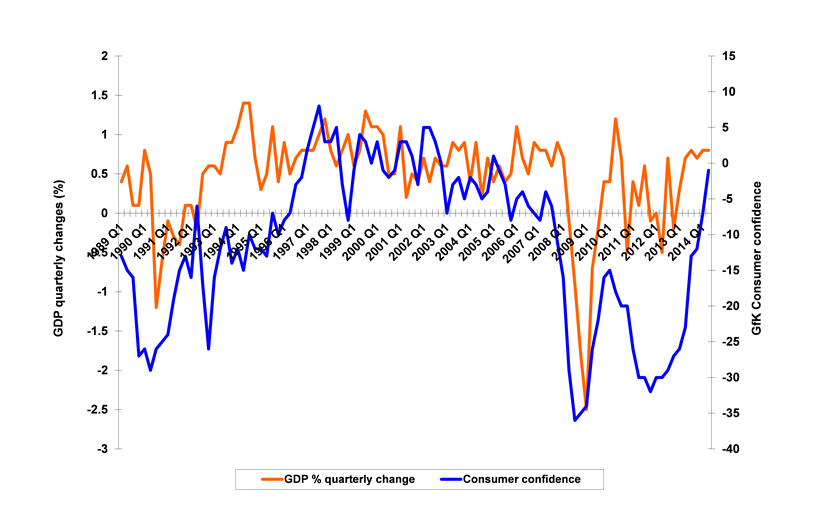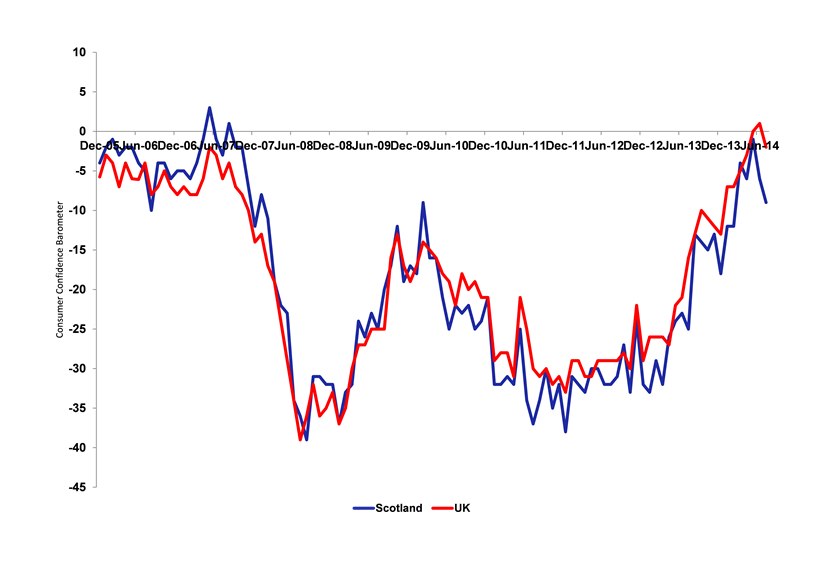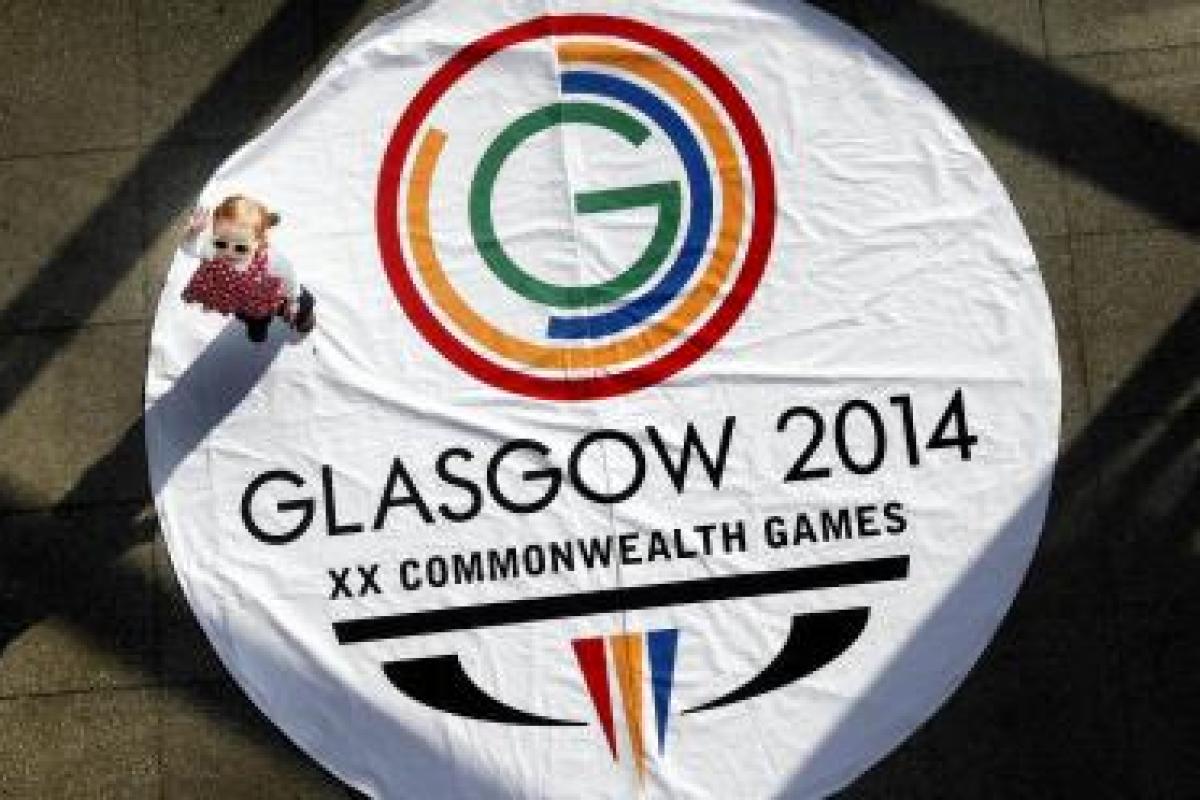Events at the Commonwealth Games recently have demonstrated again how big a role big sporting events play in the psyche of the nation.
Many of the stats relating to the Games have been much better than expected with over 1.2 million tickets sold and some 100 Commonwealth Games records broken.
Glasgow will forever be remembered as staging the peoples’ Games. It may have had fewer global sporting stars present, but the Games further illustrated the remarkable ‘being there’ desire of people (evident at the Tour de France in Yorkshire and London earlier in July).
While the disappointment of early English elimination from the World Cup - and of Andy Murray at Wimbledon - may have put consumers in a more downbeat mood in the first half of July, the 275 medals won by home nations at the Commonwealth Games may well bring a change of mood in August.
Consumer confidence in July fell for the first time since last December
The headline GfK measure slipped 3 points to -2, back from positive territory in June where it was for the first time since March 2005. This slide may be temporary. Strong Q2 GDP growth of 0.8% on Q1 and annualised growth of 3.1% has pulled the UK out of its 6 year depression, with much of the growth in the service sector that will include sports, arts and leisure businesses. Consumers are now benefiting from growth.
UK Consumer confidence and GDP growth Q1 1989 – Q2 2014

Source: GfK NOP / European Commission / ONS / JGFR
Major events help optimism
A key driver of the jump in confidence in the past year is a rise in consumer optimism that major events can help to boost. A recent report from HM Government and The Mayor of London ‘’Inspired by 2012: The legacy of the Olympic and Paralympic Games” showed the economic boost hosting major events can bring. This is now valued in excess of £14 billion. UK Sport has announced some 30 major events until 2019 that will deliver elite performance, economic and tourism benefits.
Legacy research carried out by JGFR last autumn found that nearly a half of the public believed the Games had delivered economic benefits and that sports participation had not fallen away post Olympics.
Winter Olympics boost
Earlier this year, the performance of Team GB in the Winter Olympics in Sochi exceeded expectations and gave a winter boost to the sporting mood.
Just over a half of the public believe the success of Team GB in the Winter Olympics/Paralympics will be a boost to sports participation (compared to two-thirds of the public in September 2012, post the Olympics/Paralympics). With a majority of female medal winners, far more women agreed with the statement (56%) than men (44%). Regionally the biggest expected boost to sports participation post-Sochi is in the North East (64%) and Scotland (62%). Sports sponsorship and CSR activity will continue to be essential marketing tools for businesses in their communities.
Scotland is very much the centre of the UK’s media interest as the countdown to the Referendum continues. The latest sentiment measure shows Scots confidence the weakest in the UK with economic optimism much lower than in other parts of the UK. Will the Commonwealth Games success cause an upwards shift in sentiment in August and boost the Yes Campaign?
Confidence UK v Confidence Scotland, 2005 - 2014

Source: GfK NOP / European Commission / JGFR
Another thought. Is the nation becoming ever more addicted to a participatory event-dominated agenda?
This month will see yet more attention on Scotland as the Edinburgh Festival gets under way with the Marketing Society itself holding court. Next month Scotland is host to the Ryder Cup. Marketing events is now very big business both domestically and internationally. The number of festivals has proliferated. Business is getting social in many different ways.
Such events now are both set in the past and the present. Military conflicts are never far from the top news story, especially with the centenary of the outbreak of the Great War. The UK’s move to disengage with Europe in the coming years seems at odds with the number of ceremonies highlighting the need for Europe to remain united. This at a time when the UK heads the EU European Sentiment Index League of major countries (ahead of World Cup winners Germany).
As politicians and the public debate the run-up to the Scottish Referendum and policy shifts in the coming months ahead of the UK general election, Russia and FIFA will remain cause celebres with football at the centre of global politics and business.
There is the likelihood that the run up to 2018 may become a battle to take staging the World Cup away from Russia and boycotts threatened. The English FA may already be dusting down plans for reviving the 2018 bid. Skirmishes are already underway with FIFA led by the English press. I suspect the Great Football War of 2014-18 may have begun.
John Gilbert is chief executive of JGFR and chairman of charity Cricket for Change. Read more from him in our Library.
